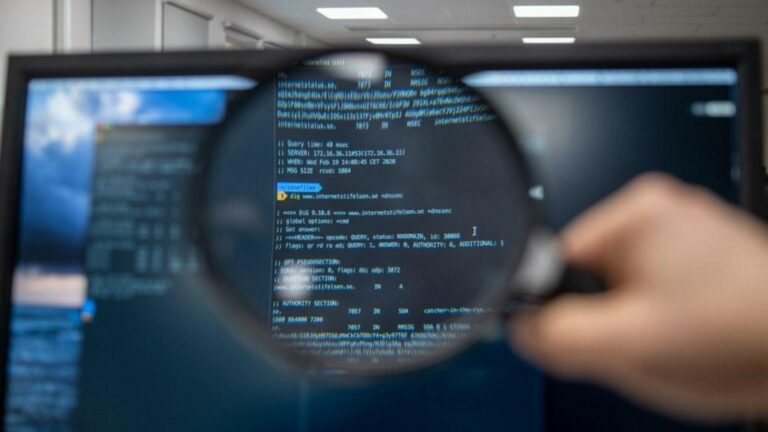Does Antivirus Detect Tracking Software?

As businesses adapt to modern technology, they must constantly be alert against an array of cybersecurity threats. This is where effective antivirus software comes in. But will antivirus detect the tracking software on company systems?
Antivirus generally do detect tracking software. This is because antivirus programs are designed to detect software that can be used to track the computer. To use tracking software you will need to set an exclusion in your antivirus settings. That way your antivirus will treat the monitoring software as trustworthy.
Continue reading for a detailed explanation of why antivirus does not detect tracking software.
What is Antivirus?
Antivirus software is a form of security software used to protect computers, networks, and various other systems from malicious software such as viruses. Antivirus software is a common component of comprehensive security packages, but it is also available independently.
Antivirus software is commonly used as a preventative measure against cyberattacks like phishing, ransomware, and other forms of malicious software like keyloggers, browser hijackers, worms, rootkits, spyware, and adware.
There is currently no antivirus software that can identify and prevent all possible forms of cyberattack. Antivirus programs rely on virus definitions to recognize malicious software. That is why it gets the latest virus definitions with each update.
Malware definitions provide signatures for all newly discovered viruses and other forms of malware that have been categorized as wild.
When an antivirus program scans a file or program and detects malware that matches a definition in the antivirus database, it stops the file from running and moves it to a holding area called a quarantine. Malware is handled in a manner consistent with the security measures in place against it.
How Monitoring Software is Different from Spyware

Before we get into whether an antivirus can detect monitoring software, let’s look into how monitoring software is different from typical computer spyware or malware.
Spyware/Malware
Spyware is malware designed to spy on its target. This malicious software can be downloaded automatically, spread via phishing links, or activated by clicking on a misleading pop-up. Once it has infiltrated your device, it will take information about your online activities as well as credentials to your financial accounts, credit cards, and other accounts.
Spyware can even hijack your device’s microphone and camera. This means it may listen in on what you are saying and even record them, and it can gain access to whatever private data you may have despite not keeping it on your computer.
Spyware is not always designed to steal personal information. However, there is a high risk that the data it obtains may be misused. Whatever information it gathers is then sold to third-party users, data companies, or advertising in exchange for money.
The presence of this type of malware is higher on Windows operating devices, although it also affects iOS and Android. Spyware runs in the background, regardless of where it is installed. It has no noticeable effect on the device’s performance.
Therefore, users often have no idea about what’s going on.
Computer Monitoring Software
Computer monitoring software is used to monitor or record any and all activity that takes place on a user’s computer. This program is set up directly by the person who wishes to carry out the monitoring as opposed to being hidden on top of the installation of another piece of software.
Monitoring programs are mostly used by worried parents, government agencies, businesses, and educational institutions. They have helped many businesses, schools, and parents rest easy knowing that their computers are being used responsibly.
Monitoring software can keep track of all actions to help provide evidence if a user misuses their computer access, or it can be used to stop people from doing unlawful activity if it is set up to let people know they are being watched.
Monitoring software can also be set up to run in the background visibly without letting the user know that they are being watched.
Nearly all of a user’s activity on a computer can be recorded by monitoring software, but this information is never shared with anybody other than the person who set up the program.
Can Antivirus Detect Tracking Software?

Yes: Antivirus solutions are designed to identify and remove applications that could potentially be used to spy on the computer. And computer monitoring software does exactly that. That is why you must set an antivirus exception if you want to install computer monitoring software. After setting up the exception, your antivirus will work normally, but will excude the monitoring software from scan.
On the other hand, monitoring software is developed for legal purposes within a business, such as keeping tabs on worker output, checking for compliance, and protecting confidential data. This type of program is intended to work transparently, according to all applicable ethical coding standards. It is not unethical or malicious in any way.
Watch this video to learn how to setup the correct antivirus settings in order to use the Wolfeye computer monitoring software:
Is Tracking Software Legal?
Monitoring software is permitted under the law, provided that the purchasers of the software do the installation on their machines. You may be breaking federal or state law if you purchase the software and then install it on a computer that does not legally belong to you.
Understanding these laws and making sure you follow them is crucial before you implement any tracking software, whether that be as an organization or as an individual.
Can Antivirus Detect Spyware?
In principle, antivirus software is intended to eliminate viruses from a computer system. However, a reliable antivirus program should guard against spyware as well. If the computer does become infested, the antivirus software should be able to identify at least some of the damage and direct you toward solutions.
For instance, one way that antivirus software might guard you against spyware is by disabling your camera. Protecting against keyboard loggers and webcams are two of the most important and efficient active defense measures against spyware.
In addition to the actual protection, your antivirus software should also be able to identify any security breaches that could compromise the confidentiality of your personal information.
Conclusion
So, if you’re looking to install an antivirus program on your company devices, you can rest easy knowing that these programs won’t notify users about any tracking software you may have installed. Enjoy the extra layer of security without having to forego your tracking needs!